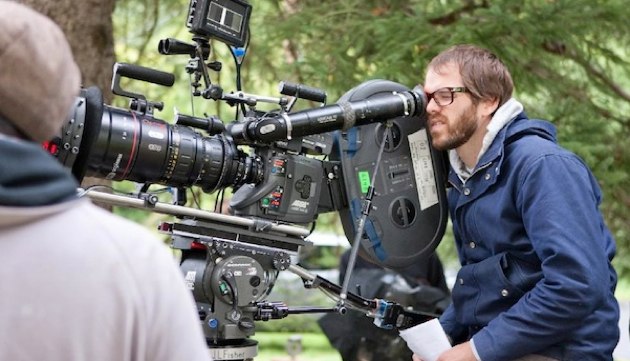Sean Durkin Talks Martha Marcy May Marlene, Elizabeth Olsen's Face and Directing Like a Coach
So for filmmakers getting started, would you recommend hiring the casting director as kind of the casting process itself?
Well, now we just have our people, so it's hard. But when we were producing things, we'd always say, "The casting director is the first person to get on board." And I always tell this to students. I think the reason our student films went well is because we had proper casting director, and we had good actors from the very beginning. At least if you have good actors, you're at a certain level. But also make sure it's a casting director whose tastes you respect and who understands where you're going. There are always times when you're collaborating with anyone when they read your script and they have someone in mind for a part, but it's not what you want. And you work through that, and you figure out you want.
Was it as clear to you on the set as it might have been in the editing room or to the viewer what kind of work this cast -- and Lizzie in particular -- was delivering?
Yeah. I knew there was something very special happening. Everybody did. Everybody felt it. The other actors... we were so impressed by it right away: It's her second film she'd ever shot, and it's her first leading role. And the first film she shot, their last week and our first week overlapped. She'd only been shooting movies for four weeks. But she comes in and she works like John [Hawkes] or Hugh or Sarah. She's prepared, she's ready, she's going. You're not pulling anything out of her. A lot of times with young actors, you have to pull a performance out of them -- even if they're great and talented and you get a great thing in the end, it's a lot of work. The story I always tell is that we had no prep time. She was shooting her other movie. We had two auditions; we talked in those auditions, but after that, we only met once for one hour. She asked a few questions, I told her a few things, and she said, "OK, I think I've got what I need." I said, "OK! See you on set!" and we showed up the first morning and started going. It was amazing.
Her face is so incredibly evocative, even when it seems still or expressionless. How soon did you realize what you had there?
In the audition. We saw it on the set, but in the audition, it was something I was looking for. I made a short film called Doris, and Rosemarie DeWitt and Paul Sparks were in it. Rosemarie is a friend of ours, and she did it as a favor, and Rosemarie's character didn't have a single line in the movie. I just decided, as coverage, I would shoot her each scene and let her react to everything else. And as I was cutting the movie, I realized that the performance happening on Rosemarie's face was just better than everything else. So I changed the name of the movie to Doris and focused entirely on her character.
I loved that experience, and I love films that silently capture that emotion. So I knew that's how I wanted to approach Martha as well. When we were auditioning, I was looking for that -- almost unknowingly at the time. But I just that in Lizzie's first audition -- that she could convey a lot with her eyes without trying. That's the other key about Lizzie, is that she's effortless in her performance. I never felt like, when we were shooting, that she was trying. If I did, then the scene wasn't working. She's at her best when she's just letting it happen.
As a former athlete, do you feel like you're more in touch with the physicality of your actors or their characters -- say, what their movement or presence brings to a scene?
I don't know. I've never thought about that. But I'm always thinking about -- whenever I'm making a movie or writing a script or hiring a crew -- I'm always thinking about a soccer team. "This is one player; this is what I need. I've got one piece; I need another piece." And I was thinking about a really great game: If you watch a great soccer game --the change, the rhythms, the escalations, the back-and-forth -- it's like watching a good story unfold. I come from that place. And most importantly, the biggest thing I learned from directing was sort of a coach-player mentality. As a player, I had instances where I completely lost my confidence because of ways that coaches dealt with me. There were moments when I was shattered and didn't know how to play -- I was so focused on this lack of confidence. And so I try to approach directing in a way that doesn't do that -- to think about that relationship. What did that coach do to me, and how do I avoid that? How do I make these players confident? That's definitely enters into it.
What's next?
I'm working on a script that I'm writing. I'm trying to figure it out; it's tough to be writing again. We're working on my script, Antonio's starting to develop something, Josh is developing something, and we're in post on Antonio's second feature. We're fully running.
Follow S.T. VanAirsdale on Twitter.
Follow Movieline on Twitter.
[Top photo: Getty Images]
Pages: 1 2

